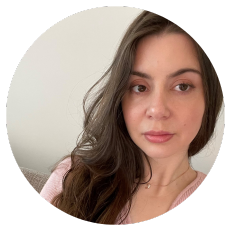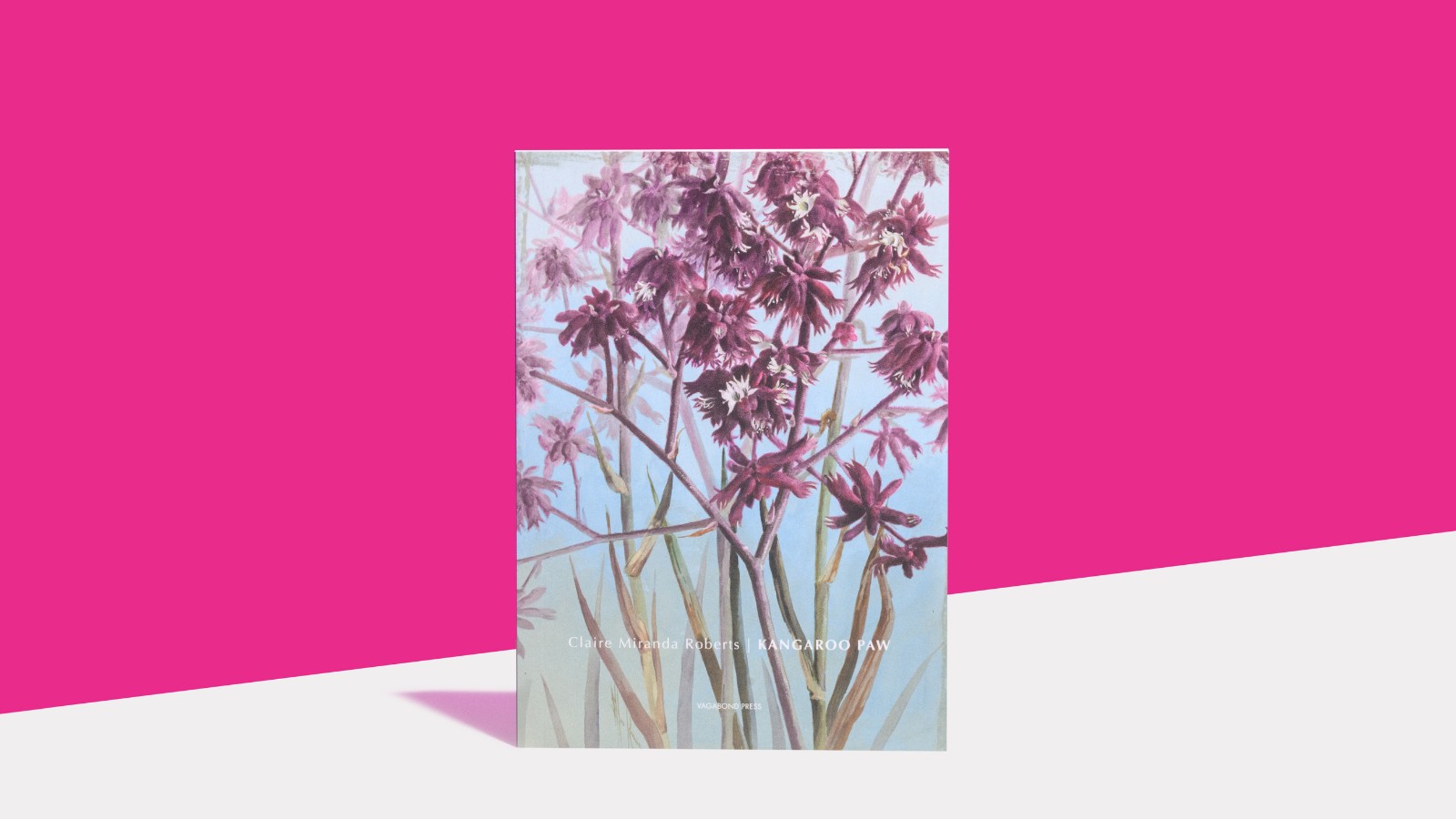Title: Kangaroo Paw
Author: Claire Miranda Roberts
Publisher: Vagabond Press
Kangaroo Paw journeys through two poetic landscapes: the informal and the formal. The latter leans into traditional verse through the sonnet, cento, procedural works and half-rhyme. This is a stylised garden, complete with introduced plant species, yet troubled by the lyrebird and rainbows that fall to the earth. In contrast, the opening sequence travels through open bushland via a series of fragments, stopping at the smallest wildflower, taking form from the split in a branch and the gaps in the canopy. Here, poetry is localised and tied to the author’s lived experience, wherein personal revelations ‘fall like looped jade’. In Kangaroo Paw, fragments shift into lyrics and lyrics into prose. Throughout, Roberts’ is attentive to nature, phenomena, beauty, and the Whitmanian ‘life below’.
Photography by Sarah Walker
Judges’ report
Kangaroo Paw is tightly focused on observing indigenous and introduced flora; it is a collection reminiscent of a series of miniaturist artworks. The writing is characterised by controlled intensity and formal play – renewing a sense of how words work to sort and label – while its visual patterning typifies mathematical precision. The poems in its opening sequence adopt an unusual formal approach: they create gaps within poems which characterise and embody the growth patterns of open bushland. In contrast, other poems mirror non-indigenous flora through the use of more enclosed traditional forms. We were struck by the collection’s insistence on poetic form (inflected by Roberts’ training as a visual artist), in this era of often looser poetics. This is a subtle and enigmatic work that invites re-reading.
Extract
Armillaris
The clasps
of calyx branches
wooded weight upon
duplicate saplings
are shyness—
the extension of
politeness to a stranger.
Lotus Australis
The terminal leaf
of the coastal lot- us
instead of whorls
ascend ascend
shells perhaps small
but – small and gentle
bloom to be
sea foam.
Cenchrus
Trying to hold strength
against the coastal
grass
frayed
flower spikes
turning to rust
rustle the wind
and make a thread
with my life—
more perfect for
growing precariously.
Reflection
A longing for place
is my only longing—
I tell
the double narcissus
its inherited yellow
dark yellow doesn’t
suit me
it could be
weeds or another
miracle to forgive
before human attention
shadows these
small
doorways
I make half-
peace with the light.
Magnolia Stellata
Another spring.
Begins before the leaves.
Cloaked in pilose burrs.
Slightly fragrant.
Canonical habit.
Tending to frost.
Without natural flaws.
The effect of many sepals.
Borne on lifeless branches.
Emerge large, bronze, glassy.
Water Flower
The lotus
blooms, triple
bending into surface—
I want to hide the water
flower, to prevent it from being
seen, the experience of being defamed
or written too clearly. Secrecy
belongs to the lotus
that unfastens
soundlessly like the falling
weights in an elevator
contain solitude—
a dwelling and a gallery
for softened ivory.
Afterword
I should have said from the outset I was trained as an artist. As a teenager I was sent to the Victorian College of the Arts for still life drawing classes after school. When my mother left for her night shift as a nurse, she would ask me to leave a watercolour on her pillow. I drew the irises that grew paradoxically in our dry garden. Yet, on my sixteenth birthday I was given the Complete Works of Emily Dickinson and poetry became my automatic method of expression. I would start a drawing but write a poem. What is a poem? Something we hide the Self within (‘and angels know the rest’). I was also given The Prophet by Kahlil Gibran. My parents unilaterally despised organised religion, but my mother would tap on The Prophet and say “this is enough”. Gibran’s words on marriage formed part of their wedding vows: ‘Love one another but make not a bond of love’. My mother recited The Prophet so often that I knew the words by heart before I read them. I should say something about my father. He was a mathematician and had a quick British sense of humour, the kind sharpened on The Young Ones, Monty Python and Yes, Minister. He used few words whenever he floated into the room back from whatever mathematical dream he had been lazing in. He taught me grammar; the grammar of English boarding schools. So, I was schooled in art but used words to see. I would be asked to name all the colours in an iris so I could buy the right water-pencils. The world was a list of words that corresponded to shades. Without words there was no differentiation between the flower and the stem. Emerald was important. So was alizarin. I mixed nickel yellow with cobalt turquoise to make bright spring green. I should say something about my father’s neurodegenerative disease. I came to know that words are a function of the brain and not an exercise in Romance. If you put a skewer through your skull you will lose words, but you will never know which ones – you are left only with the abstract memory of the thing. Ask my father for a fork and he would call it the tool with blades, the spoon that cuts. If I have no word for how irises move before a storm, will I suffocate in their swaying flowers? Trapped in their light and the way their dense colour suspends just above their lip-like petals. How can I be sure I will consider the iris again, pushed to the end of language’s reason—
About the author

Claire Miranda Roberts was born in Melbourne and has lived in the UK, where she completed an MFA in Creative Writing at the University of St Andrews. Claire’s poetry has been published in many highly regarded literary journals, including Antipodes, Communion (Walleah Press), Plumwood Mountain, Text: Journal of Writing and Writing Courses, and Westerly Magazine, among others. She has also been shortlisted and commended in a number of international poetry competitions, including the Oxford Brookes International Poetry Prize 2020 and the Stephen Spender Prize 2021. Most recently, her manuscript was shortlisted for the 2021 Helen Anne Bell Poetry Bequest Award – Australia’s richest poetry prize for women. Claire’s poetry has been described as ‘haiku-like, observational of nature, each image seemingly occurring as the eye falls on it … a mastery of not only poetic language but also poetic placement’ (Terry Jaensch, 2020). Claire also has a strong interest in Australian history and genealogy, which she explores on her blog The Other Beauty.
Related Posts

Read
Anne-Marie Te Whiu Receives The Next Chapter Alumni Poetry Fellowship
2 Apr 2024

Read
What's on in April: Resident Organisation Round Up
28 Mar 2024

Read
Blak & Bright First Nations Literary Festival returns in 2024
7 Mar 2024

Read
What's on in March: Resident Organisation Round Up
29 Feb 2024

Read
Hot Desk Extract: International
23 Feb 2024

Read
Hot Desk Extract: The Rooms
23 Feb 2024

Share this content